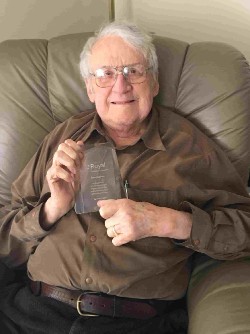When separate tragedies struck the lives of the Lees, Waddington and James families, they each turned their grief into hope for people living with mental illness.
Growing up, J.D. Lees says that his relationship with his sister, Allison, was strong. Their family spent summers at the cottage and ski trips in the winter. However, her struggles with intermittent periods of depression and an eventual diagnosis of bipolar disorder in her late teens became difficult for their family. Allison tried many different medications over the years, but struggled with the side effects as well as with her diagnosis. At the age of 27, she died by suicide.
Louise Helen Waddington – better known as Helen – was bright, gifted and always wanting to change the world for the better, according to her father, John. She was diagnosed with rapid cycling bipolar disorder and, being acutely aware of the inadequacies of her treatment at the time, saw no prospect of a full recovery. She died by suicide at the age of 35.
(Sponsored)

Iconic spaces, lasting impressions
The Canadian Museum of History and the Canadian War Museum offer more than beautiful spaces; they provide meaningful settings celebrating heritage, culture and design. An architectural landmark overlooking Parliament Hill

Advanced Business Interiors (ABI) is Making Space Work in Ottawa
ABI’s journey began with a small team on Thurston Drive in 1989; four locations and almost 37 years later, Advanced Business Interiors is now one of the largest office furniture

Jennie James was well-travelled, vibrant, fun-loving and made friends wherever she went. Her incredible mind brought her several scholarships from universities around the world, but it was also her incredible mind that kept letting her down. Seeing his daughter plagued by depression for years, Allison’s father, Ben, helped her get professional help. Despite everyone’s best efforts, as well as time spent as an inpatient at two hospitals, Jennie had her life cut short by depression. At the age of 33, she died by suicide.
To honour their loved ones, each family created endowment funds through the Royal Ottawa Foundation. The Allison Lees Depression Research Fund, the Jennie James Depression Research Fund and the Louise Helen Waddington Research Fund have each provided support to the Institute of Mental Health Research (IMHR) Annual Graduate Student Research Awards for almost a decade.
These family funds provide research and educational opportunities to promising graduate students at the IMHR who are making important strides towards better understanding mental illness, and subsequently helping to inform new prevention and treatment strategies.
“By getting involved with research, it does feel like my family and I can make a small difference in helping these students to help improve the lives of others with mental illness,” says J.D. Lees. “The thought that we can play a role in just one or two people getting better really does help with the healing process.”
J.D. says that his family’s experience getting to know these bright young students over the years has given his family some much-needed hope that the research they are helping to support will prevent future suffering for other families like them.
Two recent award recipients, Katie Vandeloo (awarded in 2019) and Patricia Burhunduli (awarded in 2018), are both currently working with Dr. Jennifer Phillips on her neuroimaging study on suicide and the brain (read their stories here).
The Foundation is pleased to welcome the addition of the Julia Ruddy and Christina Ruddy Depression Research Fund to this group of philanthropic families. John and Jennifer Ruddy created a fund in memory of Julia and Christina Ruddy, who struggled with depression and were lost to suicide.
The intention of this meaningful and lasting remembrance of John’s sisters is to help advance depression research and develop more effective treatments that will help other individuals and families in the future.
Read the full report from The Royal Ottawa Foundation for Mental Health below:






